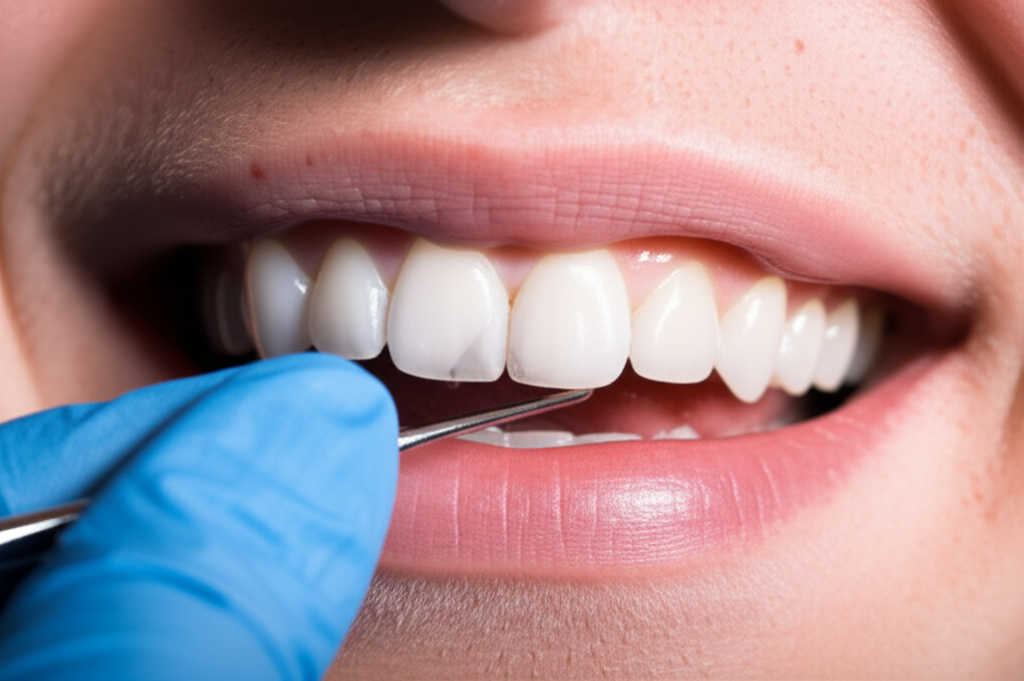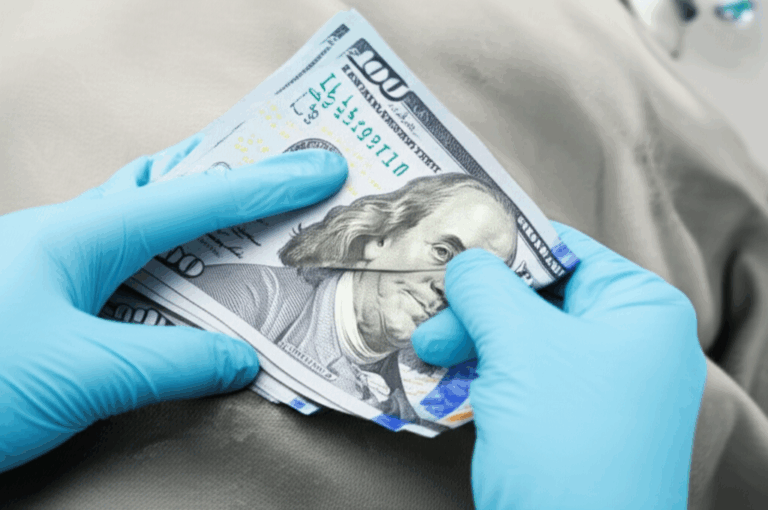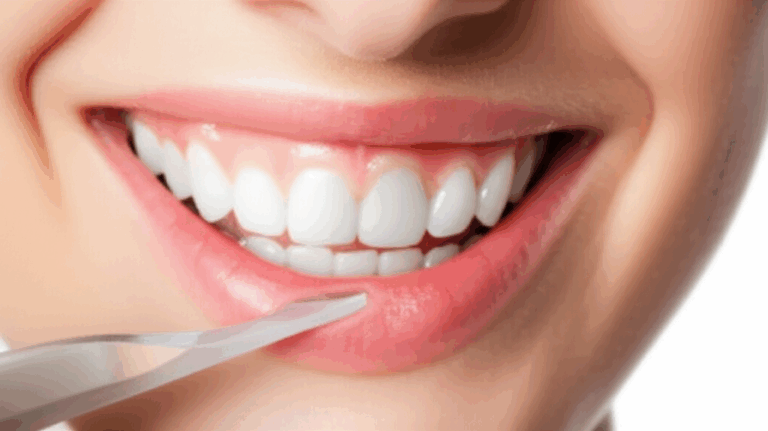
How Much Does It Cost to Fix a Chipped Tooth? Your Friendly Guide to Prices & Options
That sinking feeling when you feel a sharp edge on your tooth—or worse, hear a crack—can make anyone worry. Maybe you bit on something hard, tripped, or felt a jagged spot while brushing. Now you have a chipped tooth and a lot of questions. The main one: How much do dentists charge to fix a chipped tooth?
If you’re not sure if you need to fix it right away, what it’ll cost, or what choices you have, you’re not alone. Chipped teeth happen to everyone, from kids playing rough to adults munching on snacks. Fixing that chip is important for both your health and your smile, but knowing how and how much can feel confusing. Don’t worry—I’ll walk you through everything in simple words you can trust.
In This Article
- Why Fixing a Chipped Tooth Is Important
- Your Choices for Fixing a Chipped Tooth (and Their Costs)
- What Changes the Price? Easy Facts
- How to Pay: Insurance, Payment Plans & Budget Options
- What Happens If You Don’t Fix It?
- How to Get a Real Price (and Avoid Surprises)
- What to Do Next for Your Smile
Why Fixing a Chipped Tooth Is Important
Let’s start simple. Is it really needed to fix a chipped tooth? In short—yes, and here’s why.
Health problems:
Even small chips can open up the softer inside part of your tooth called dentin. Think of your tooth’s outside as a raincoat; once it’s ripped, water gets in. For your tooth, that means sudden pain with hot or cold food. If the chip gets bigger, germs can sneak in, causing cavities, infection, or even bigger repairs like root canals or having to pull the tooth.
Looks (your smile):
If it’s a front tooth, a chip can make you hide your smile. Even tiny chips are easy to see.
How your teeth work:
A chipped back tooth can mess with chewing. If your bite gets uneven, it can hurt your jaw or wear out other teeth—like driving with a flat tire.
Bottom line:
Fixing your chipped tooth soon isn’t just about looks. It’s a smart move for comfort and the health of your mouth.
Your Choices for Fixing a Chipped Tooth (and Their Costs)
When you visit the dentist, they’ll look at the chip: Is it small or big? Which tooth? Is it just the outside or did it go deeper? These things, and your own choices, help decide the best fix.
Here are the most common ways to fix it, what they’re good for, and about how much they cost.
A. Dental Bonding (Composite Resin)
What is it?
Bonding is the most common fix for small to medium chips, especially up front. The dentist puts on tooth-colored filling stuff, shapes it, then hardens it with a special light.
Average cost:
$300 – $800 per tooth
Good things:
- Fast (about 30-60 minutes)
- Often doesn’t need numbing
- Looks natural, cheaper
Not-so-good:
- Not as strong as porcelain
- Can stain (coffee, tea, soda, wine)
- Might need redone every 3–5 years
Best for:
Small chips or cracks, if you want a quick, not-too-expensive fix.
B. Porcelain Veneers
What are they?
Thin shells of porcelain that cover the front part of your tooth—like a fake nail for your tooth. Good for medium chips that hurt your smile, or if you want a major change.
Average cost:
$900 – $2,500+ per tooth
Good things:
- Look awesome, very natural
- Hard to stain
- Can last 10–15 years
Not-so-good:
- Expensive
- Some enamel (the hard outside) has to be removed for them to stick (can’t undo)
- Usually “cosmetic,” so insurance rarely pays
Best for:
If the chip shows when you smile and looks are most important, and you’re okay paying more. Want to know how veneers are made? Here’s what a veneer lab does.
C. Dental Crowns (Caps)
What are they?
Crowns cover the whole tooth. Think of a crown as a hard hat for a tooth that’s badly broken, painful, or cracked deep.
Average cost:
$800 – $3,000+ per tooth
Good things:
- Super strong, good for chewing
- Can last a really long time
- Fixes both looks and use
Not-so-good:
- More costly, especially if you need a root canal too
- Two dentist visits, because a lab makes the crown
- More tooth needs to be filed down
Best for:
Big chips, teeth that hurt, deep cracks, or weak teeth.
D. Enameloplasty / Tooth Recontouring
What is it?
If the chip is tiny—just a bit rough—the dentist can file and smooth it. No filling stuff needed.
Average cost:
$50 – $200
Good things:
- Quick and not painful
- Very cheap
- Good for just fixing small edges
Not-so-good:
- Only for really small chips
- Takes away a bit of enamel, can’t replace it
Best for:
If you barely notice the chip and it doesn’t bother you.
E. Dental Filling (Composite)
What is it?
If the chip is deeper (down to the yellowish part), the dentist may use filling material. Looks like bonding but is a bit stronger and keeps out germs.
Average cost:
$150 – $400
Good things:
- Quick and strong
- Matches your tooth
- Usually insurance pays part
Not-so-good:
- Sometimes needs a bit more drilling
- Not as nice in looks for bigger front tooth chips
Best for:
Deep chips, or those that hurt or are sensitive.
Quick Reference Table: Typical Chipped Tooth Repair Costs (US Averages)
| Repair Type | Best for | Average Cost (USD) | How Long | Insurance? |
|---|---|---|---|---|
| Dental Bonding | Small/medium chips, front teeth | $300 – $800 | 30–60 min | 50–80% (if not just for looks) |
| Porcelain Veneer | Front chips, best looks | $900 – $2,500+ | 2 visits | Not often |
| Dental Crown | Big/broken teeth, molars, root canal teeth | $800 – $3,000+ | 1–2 visits | 50%+ (if needed for health) |
| Enameloplasty/Recontouring | Tiny chips, rough edges | $50 – $200 | 15–30 min | Maybe, depends |
| Composite Filling | Deeper chips, any tooth | $150 – $400 | 30–60 min | 50–80% (if health reason) |
| Emergency Visit Fee | Bad chip/pain, urgent care | $75 – $250 | 30–60 min | May cover exam/tests |
| X-rays | To see chip depth | $25 – $200/set | 5–15 min | Often covered |
| Consultation | Looking at the chip, plan next steps | $50 – $150 | 15–30 min | Usually, or applied to repair |
(Prices can go up or down based on where you are, how much experience the dentist has, and how tricky your tooth is. For your own true price, always ask your dentist.)
What Changes the Price? Easy Facts
Feeling worried by those numbers? Here’s why chipped tooth repair can cost more or less.
1. How Big and Where the Chip Is
- Tiny chips = Fast, cheap fixes like smoothing or bonding.
- Big/deep chips = More work, more cost.
- Front teeth = Need to look perfect, so more expensive.
- Back teeth = Need to be strong. Crowns can cost more.
2. Your City or Town
Just like rent, dentist prices are higher in big cities.
3. Which Dentist You See
- General dentists = Usually cheaper.
- Specialists/cosmetic experts = Often more, but you get extra skill.
4. Material Used
- Filling stuff (resin) is cheaper, but might not last forever.
- Porcelain, zirconia, or e.max are costlier but look and last better. These are often custom made at a dental ceramics lab.
- Lab fees: When something is made outside of your dentist’s office, it adds to the cost.
5. Extra Things Needed
- X-rays or camera pictures to see the chip clearly.
- Numbing shots if the chip hurts or you’re nervous.
- Emergency visits after hours can also raise the price.
6. Insurance or No Insurance
- If it’s to keep your mouth healthy, insurance helps—usually pays 50–80%.
- If it’s just for looks (like veneers), you pay out of pocket.
- No insurance? Don’t worry, see below for tips.
How to Pay: Insurance, Payment Plans & Budget Options
Dental bills can add up, but there are ways to handle chipped tooth repair—even on a tight budget.
Dental Insurance
Insurance covers a lot when the fix is for your tooth’s health (fillings, crowns, bonding). Most plans pay 50–80%, but check for deductibles and yearly limits.
- Cosmetic repairs—like veneers—aren’t usually covered.
- Stay in-network if you have insurance to keep costs lowest.
Tip: Bring your insurance card when you go. Ask the office what your insurance covers before you agree to anything.
If You Don’t Have Insurance
No insurance? You’re not alone. Here are some ideas:
- Payment plans: Many dentists let you pay over time with companies like CareCredit.
- Dental discount plans: Pay a yearly fee and get lower rates at certain clinics.
- Dental schools: Students (with teachers watching) can do simple repairs for a lot less.
- Community clinics: Some have sliding fees based on your income.
- Ask for a cash discount: If you pay in full, some offices give you a break.
Smart Questions to Ask
- “What is the least and most I might pay here?”
- “Is this fix for health or just looks?”
- “Does my insurance pay for this? What will be my part?”
- “Can you show me each part of the cost?”
What Happens If You Don’t Fix It?
It can be easy to delay going to the dentist. Maybe the chip is tiny, or you’re busy, or worried about money. But not fixing a chipped tooth can lead to:
- Pain: A little “zing” from cold drinks now could turn into a big ache soon.
- More damage: Chipped teeth are weaker and may break more. You could damage other teeth too.
- Cavities/infection: Sharp spots catch germs. You could end up needing a root canal or even losing the tooth.
- Problems chewing and talking: Even small chips can mess up eating or speaking.
- Looks: Chips can stain or collect plaque, and stand out more over time.
- Higher bills later: Waiting often means a simple fix turns into a big (and more expensive) procedure.
How to Get a Real Price (and Avoid Surprises)
Every chip and every mouth is different. Here’s how to get the real cost:
Have the dentist check the chip and maybe take x-rays. Many apply this visit’s fee to your repair.
Have your dentist explain all costs, one by one.
Especially for big repairs, it’s smart to ask more than one dentist.
Pro tip: Ask if a digital workflow (using a digital dental lab or a 3D dental printer) can make things cheaper or faster. If your dentist works with a china dental lab, you might even get good quality work at a lower price.
What to Do Next for Your Smile
Here’s a fast summary:
- Chipped teeth are normal. Quick repairs keep your smile healthy and working well.
- Costs run from $50 to $3,000+ depending on your tooth, repair type, and what you need.
- What you pay changes by which tooth, what it’s made of, who does it, if you have insurance, and if you need stuff like x-rays or lab work.
- Insurance usually helps if it’s for health, but not if it’s just for looks. No insurance? There are still good options.
- Waiting can cost you more—in pain, lost teeth, and bigger dentist bills.
What to do next:
Your smile is important. Protect it by acting soon, asking questions, and choosing what fits your needs and wallet.
Further Reading and Resources
Want more about dentist pricing, insurance tips, or how to prep for your dentist visit?
Check out our dental practical guide.
For help with dental care, see patient dental or learn what to expect at your next visit.
Remember, this guide is just for info. Always check with your own dentist for the best advice. If you need caring help, reach out for a real estimate—keep your smile happy and strong!








